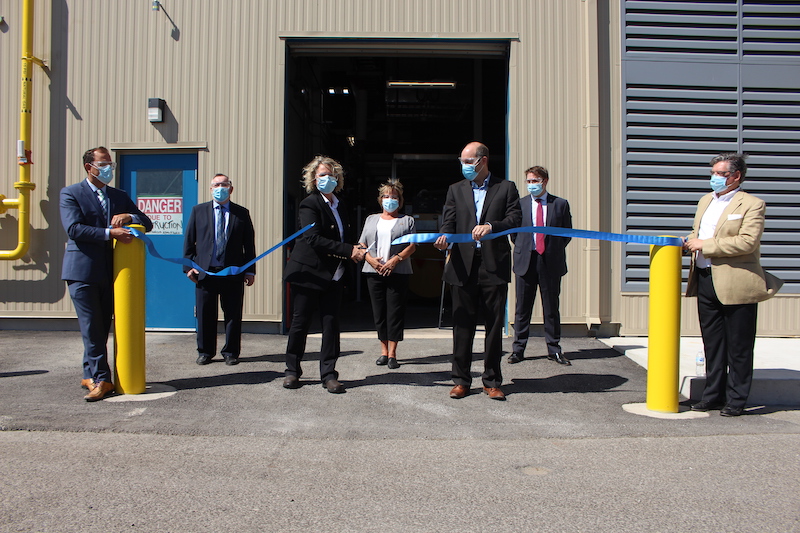
GM Canada completes $28M cogen project that uses renewable landfill gas
September 1, 2020
By General Motors Canada
 Photo courtesy GM Canada.
Photo courtesy GM Canada. General Motors Canada and partners have announced the completion of a $28 million cogeneration investment at the GM St. Catharines Propulsion Plant that will enhance the operation’s competitiveness by lowering greenhouse gas emissions and reducing future energy costs. The cogeneration program is expected to reduce net greenhouse gas emissions by approximately 70 per cent while protecting the engine and transmission plant from rising electricity and carbon costs.
The 6.4-megawatt cogeneration project uses renewable landfill gas delivered by pipeline from the nearby Walker landfill to generate electricity from newly installed engines at the plant. GM will also recover the thermal energy that is typically considered waste to power and heat its St. Catharines Propulsion Plant.
“This cogeneration project demonstrates the power of local partnerships to deliver results that improve the bottom line, protect the environment and meet our sustainability targets,” said GM St. Catharines plant director Carolyne Watts.
“Walker and IGRS are pleased to be providing long term environmental solutions to local partners by utilizing landfill gas as a renewable energy resource,” said Geordie Walker, president and CEO of Walker Industries. “We are committed to converting waste into a resource and contributing to a sustainable future.”
The project was facilitated through partnerships with Alectra Utilities, Integrated Gas Recovery Services and the Ontario Centres of Excellence. It is the first complete renewable landfill gas industrial cogeneration system in Ontario delivering renewable landfill gas from an offsite source.
GM and its partners were joined at the event by Mayor Walter Sendzik, Niagara Regional Chair Jim Bradley and Local MP Chris Bittle.
GM has committed to power all of its global operations’ electricity needs with 100 per cent renewable energy by 2040. Greater use of thermal energy helps address heating needs to further reduce emissions.
Print this page